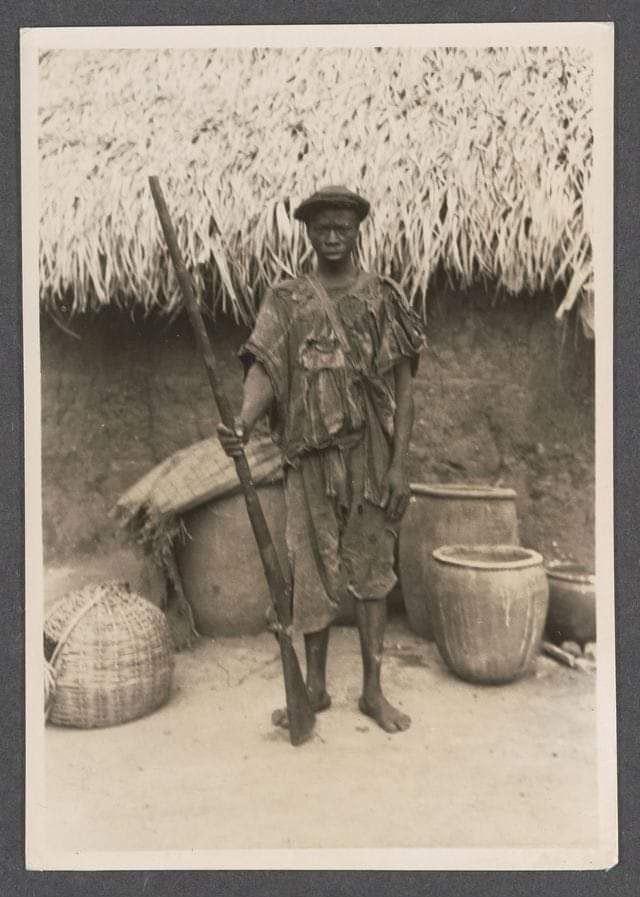The introduction of firearms in Yorubaland unfolded gradually, with the musket leading the way.

The Portuguese and Dutch brought the musket to Benin City in the 16th and 17th centuries, later spreading to Yorubaland through local trade.
These muzzle-loaded long guns emerged as powerful tools in warfare during the 16th century, significantly influencing the 19th-century Yoruba civil wars.
The Ijebu, strategically positioned on trade routes to Lagos, pioneered the use of European guns during the Owu war, marking a turning point in Yoruba conflict resolution.
Firearms, particularly muskets, played a pivotal role, shaping the outcomes of battles and wars, as seen in the Owu war where the fall of Owu was attributed to the lack of European guns.
Throughout the first half of the 19th century, guns were scarce in Yorubaland, with swords, spears, and axes being the primary weapons. Gunpowder also made its debut during the Owu war, becoming highly prized by Yoruba warriors in the 19th century.
This is evident in instances like the Ibadan army's demand for 200 bags of cowries, 200 kegs of gunpowder, and 200 guns as ransom for a European captive during the fall of Ijaye in 1862. The Alaafin of Oyo eventually intervened to secure the white man's freedom."
Naration culled from: "Weapons of the 19th Century Yoruba Civil Wars by Akin Adejuwon"
Photo: Man wearing a cap, shirt and trousers, standing in front of a building with mud wall and thatched roof, holding a long rifle in a village near Ibadan
Photograph copyright by E.H. Duckworth' 1930

